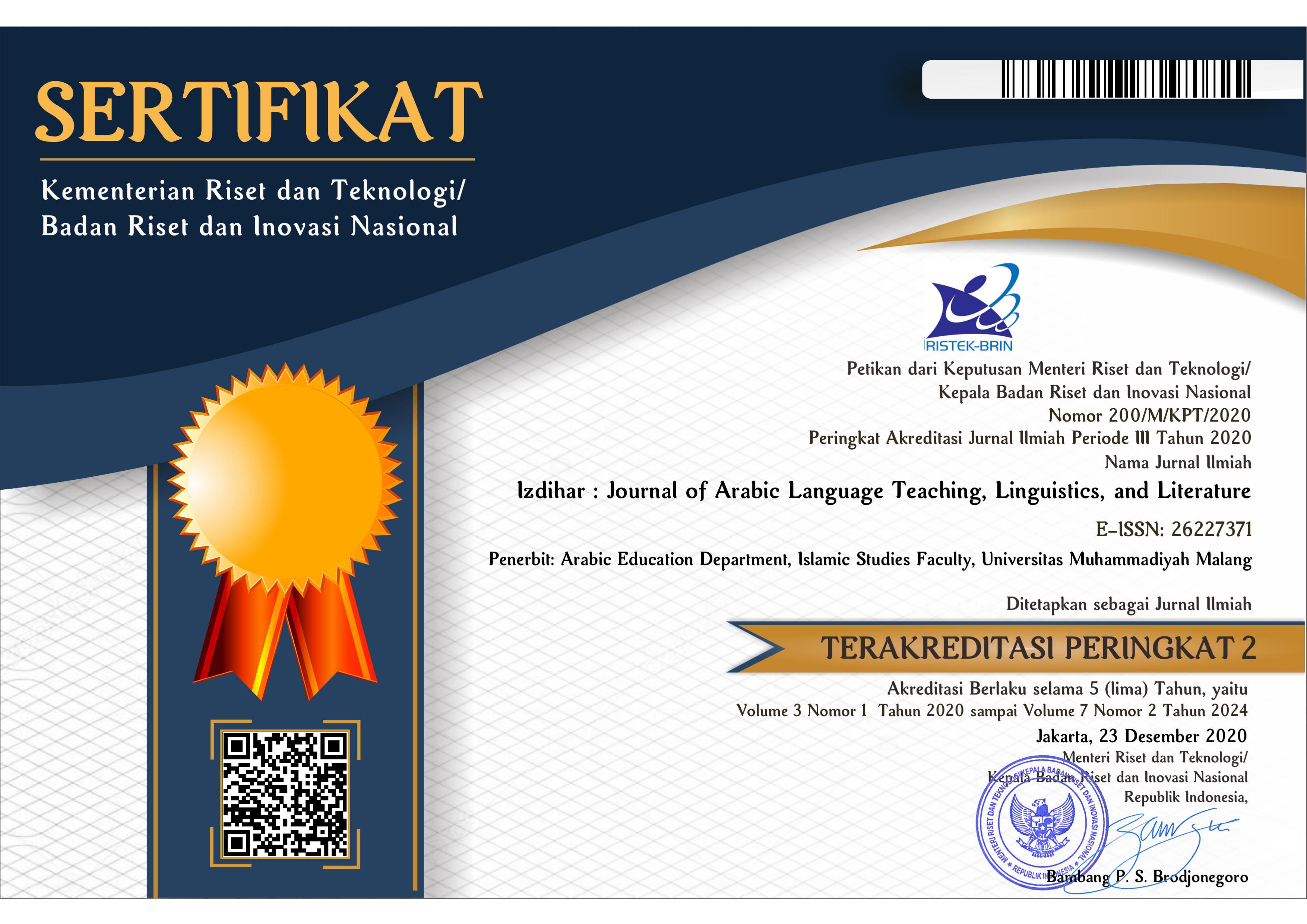CEFR-Based Arabic Language Learning Competency
DOI:
https://doi.org/10.22219/jiz.v3i3.14123Keywords:
Arabic Language, CEFR, Competence, LearningAbstract
This research was an effort to formulate an easy and modern Arabic learning method for non-Arabic speakers. Learning Arabic at CEFR does not only focus on the principles of Nahwu as science or practice, but also there are other competencies that must be included in its learning. This research was descriptive qualitative in nature with the primarily data was the study of the Common European Framework of Reference for Language (CEFR). Data analysis was carried out by document analysis on the CEFR-based Arabic learning competency and the results were presented in descriptive form. This research resulted two main competency standards in teaching Arabic based on CEFR, they were: language competence in general and communicative language competence. In this general competency there were four derivative competencies, namely: 1) declarative knowledge; 2) expertise and skills; 3) existential competence; and (4) the ability to learn. Meanwhile, the CEFR only defined communicative language competence in its three derivative competencies, namely: 1) linguistic competence; 2) sociolinguistic competence; and 3) pragmatic competence.
Downloads
Published
Versions
- 2021-01-27 (3)
- 2021-01-27 (2)
- 2020-12-31 (1)
How to Cite
Issue
Section
License
Copyright Notice
Authors who publish with this journal agree to the following terms:
- Authors retain copyright and grant the journal right of first publication with the work simultaneously licensed under a Creative Commons Attribution-ShareAlike 4.0 International License that allows others to share the work with an acknowledgment of the work's authorship and initial publication in this journal.
- Authors are able to enter into separate, additional contractual arrangements for the non-exclusive distribution of the journal's published version of the work (e.g., post it to an institutional repository or publish it in a book), with an acknowledgment of its initial publication in this journal.
- Authors are permitted and encouraged to post their work online (e.g., in institutional repositories or on their website) prior to and during the submission process, as it can lead to productive exchanges, as well as earlier and greater citation of published work (See The Effect of Open Access).
Copyright (c) 2019 Izdihar : Journal of Arabic Language Teaching, Linguistics, and Literature

This work is licensed under a Creative Commons Attribution-ShareAlike 4.0 International License.

















